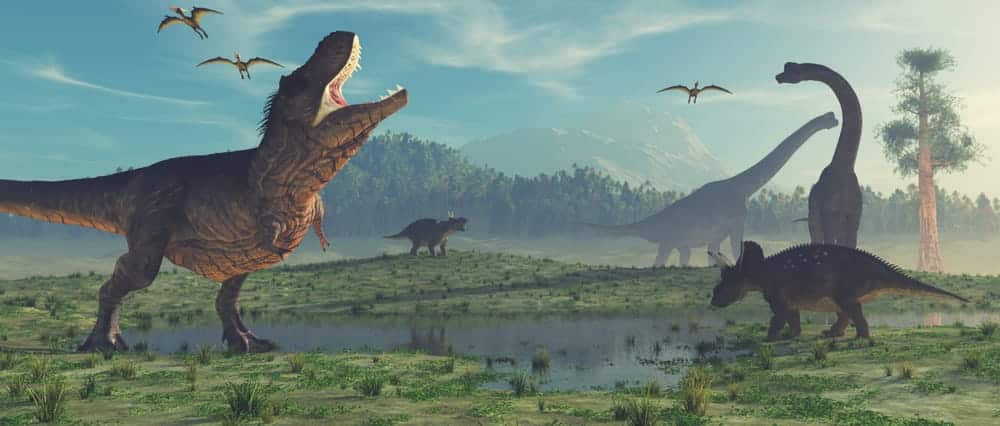There is little doubt that climate change is the central issue facing the world today. However, is there a chance that it may have all started with dinosaur farts?
The emphasis on climate change is something that has only become central to national debate in the last few decades. However, it has now been scientifically certified that its origins may come from dinosaurs passing gas 150 million years ago.
The hypothesis on dinosaur farts causing climate change comes from tests carried out by British scientists. These tests were done on the methane output from sauropods by increasing the digestive wind of cows.
Did the tests show that dinosaur farts were a cause of climate change?
The conclusion was that these dinosaurs ended up producing 520 million tonnes of methane gas each year. This number of 520 million is more than all of today’s methane emission sources added together.
Estimates say that the methane production from these animals would have easily been enough to warm the planet.
It is also possible that the methane produced from dinosaur farts could have been a key factor in their extinction.
One of the dinosaurs, the 90-ton, 140-foot Argentinosaurus, would have consumed at least half a ton of food each day. Its large food consumption makes it one of the main culprits.
What do the scientists have to say?
The scientists published their findings on whether dinosaur farts played a role in causing climate change in the Current Biology journal.
One was David Wilkinson, a scientist from Liverpool John Moore’s University. Wilkinson said the key interest in the tests was the microscopic organisms that lived inside of these massive creatures, not necessarily the actual dinosaurs.
He told BBC Nature, “The ecology of microbes and their role in the working of our planet are one of my key interests in science. Although it’s the dinosaur element that captures the popular imagination with this work, actually, it is the microbes living in the dinosaur’s guts that are making the methane.”
Another one of the scientists was Professor Graeme Ruxton. In the tests, Ruxton said that the total methane emissions produced today are not close to dinosaur levels. The methane that humans and animals produce is only a fifth of what was produced whenever dinosaurs were alive.
Ruxton said in the Sunday Times, “In fact, our calculations suggest these dinosaurs may have produced more methane than all the modern sources, natural and human, put together.”
This study does intertwine with other studies. Where there is overlap is that other studies agree that Earth was up to 10˚ C warmer during the Mesozoic Era. During the Mesozoic Era, there was less of a difference in temperatures between equatorial and polar latitudes, compared to today.

Why were the tests carried out?
The tests happened due to interest in livestock emissions, which are a well-documented contributor to global methane levels.
The calculations in the research were based on an estimated dinosaur population. This estimated population was then used on a scale that links biomass to the output of methane from farm animals.
Sometimes the role of methane in climate change is not understood. How it plays as role is that it is estimated that it is 20 times more effective in trapping heat in the atmosphere than carbon dioxide.
These figures demonstrate how dinosaur farts would have been a catalyst for the levels of climate change we are experiencing today.














